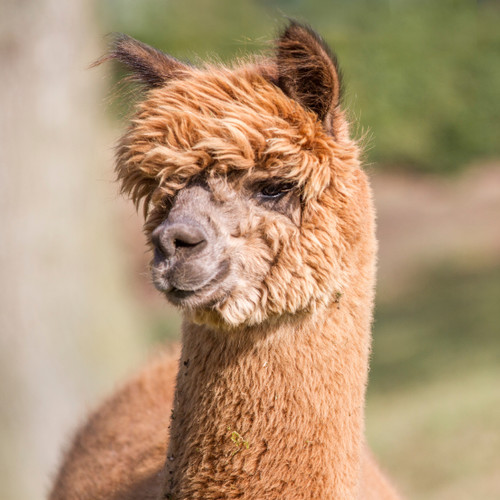Is alpaca wool humane?
13th Nov 2019
We've written blog posts on busting myths about alpaca wool in the past. One we want to take a deeper dive into is the debate on whether alpaca wool is humane. Like you, we care about the way animals and people are treated in the production of the things we buy. We also care about the health of Mother Earth, just like you. So, we tackled a tough question:
Is alpaca wool humane? We've worked with alpaca for more than 20 years, and here's what we know:
Traditional Values
About 80% of the world's alpaca population lives in Peru. They roam Peru's Altiplano region fairly freely during the temperate days, and some return to local pens at night for protection from predators. Local herdsmen tend them with a light hand, as Peruvian culture has long revered these gentle animals. Alpacas are treated with respect throughout their lives, including at healthy shearing time.
You've likely heard about the horrific treatment sheep endure when their fleece is harvested in other countries like Australia. Peruvian alpacas experience a much different process. Alpaca shearing occurs only once a year, when the weather is the hottest and the animals risk heat stroke from their heavy coats. Shearers work quickly to limit the animals' stress, removing pounds of fur in just a few minutes. Once sheared, alpacas can be inspected for other potential health issues that can be hidden under thick fur.
Good Neighbors
Not only do Peruvians treat alpacas well, but alpacas treat Peru well in return. An alpaca's feet are wider and softer than those of sheep and goats, so they don't trample the land. And when alpacas eat, they nip native grasses just low enough to encourage regrowth but not low enough to kill the roots. They also use community dung piles, meaning their excrement doesn't pollute wide swaths of land.
This natural symbiosis between alpacas and their homeland makes alpaca wool a solid humane choice. But the positive benefits of alpaca don't stop in South America.
Fine Citizens
Besides the ethical treatment of alpacas in Peru and the earth-friendly way alpacas grow and share their soft wool with us, the wool itself is superior to sheep's wool or cashmere in many ways. Pure alpaca wool contains no lanolin, which is a natural oil produced by sheep - and the culprit behind that itchiness and redness many people experience wearing sheep's wool. Without lanolin, alpaca wool is considered hypoallergenic, meaning its far less likely to induce any allergic reaction or itchy sensation.
Pure alpaca wool is also lighter, warmer and more durable than sheep's wool. The fibers are hollow, flat and thin, and when woven create natural chemical free insulation without irritation; the texture of superfine alpaca wool is smooth and soft. One third the weight of traditional wool yet warmer with superb wicking and breathability, keeping the wearer at their optimal temperature.
We partner with production mills that are committed to protecting the environment. The processing of the pure alpaca wool can be done with eco-friendly soaps instead of harsh chemicals and new processes have been created in the washing and rinsing to recycle water. This conservation of water protects the environment and watersheds from pollution. Dyes, when used (alpaca comes in a natural rainbow of neutral tones but also dyes easily) are AZO free, California Prop 65 compliant and safe for crafts people as well as wearers. These key technological advancements enable a better lifestyle for the employees, the community and the planet.
The long-term care of alpaca wool is as gentle on the planet as the animals who grow it. Alpaca wool is naturally moisture resistant and won't retain odors because there's no moisture to draw in bacteria, meaning it can be washed less frequently and with very mild detergents. This prevents the wool from holding or producing odor. Once washed we recommend air drying. Alpaca dries quickly, in most cases overnight, saving electricity and cutting costs. Superfine alpaca resists pilling so garments wear well and are long lasting.
Warm Feelings
Our ultimate conclusion is a resounding yes: pure alpaca wool is a humane, ethical, eco-friendly choice for soft, durable socks and other clothing. They also keep you warm in the cool seasons while breathing easy in warmer weather too. If you've thought of luxurious alpaca socks as an expensive indulgence, rest assured that it's one of the best investments you can make - for comfort, yes, but also for the health and well-being of your family, the planet and those adorable alpacas!

